How to Grow Echeveria
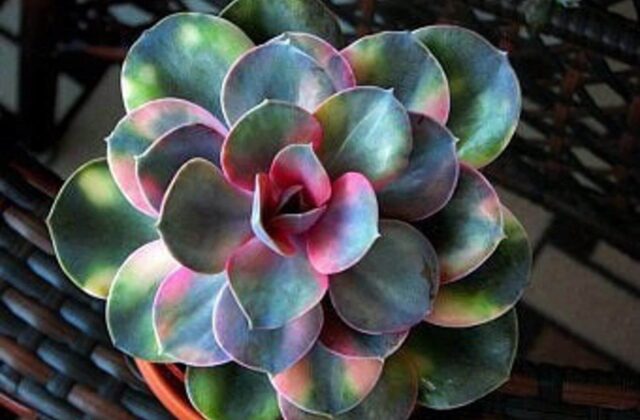
Introduction
Welcome to the enchanting world of Echeveria, a diverse and stunning genus of succulents. As we delve into the intricacies of Echeveria, this detailed introduction not only explores their diverse species and distinctive characteristics but also provides essential insights into how to grow Echeveria with utmost success. Plant enthusiasts and gardeners alike cherish Echeverias for their captivating rosette formations and vibrant hues.
Originating from Mexico, central, and southern America, Echeveria’s flourish in hot, sunny locations. Thriving in neglect and resilient to drought, Echeverias thrive in both indoor and outdoor containers. The smaller varieties frequently contribute to carpet bedding schemes. From soil preferences to sunlight requirements and watering tips, discover the art of nurturing these resilient and elegant succulents. Unlocking the secrets of how to grow Echeveria promises a rewarding experience, allowing you to cultivate and showcase these botanical gems with confidence and admiration.
Echeveria Varieties
Echeveria ‘Lola’ is a popular variety admired for its striking rosettes of pastel-colored leaves, which can range from mesmerizing shades of blue to delicate hues of pink. These captivating colors make it a standout choice for succulent enthusiasts looking to add a touch of ethereal beauty to their collection.

On the other hand, Echeveria ‘Perle von Nurnberg’ is a stunning hybrid that entices with its silvery-gray leaves adorned with mesmerizing pink highlights. This unique combination of colors has secured its place as a beloved favorite among succulent enthusiasts, adding an elegant and enchanting aura to any garden or indoor space.
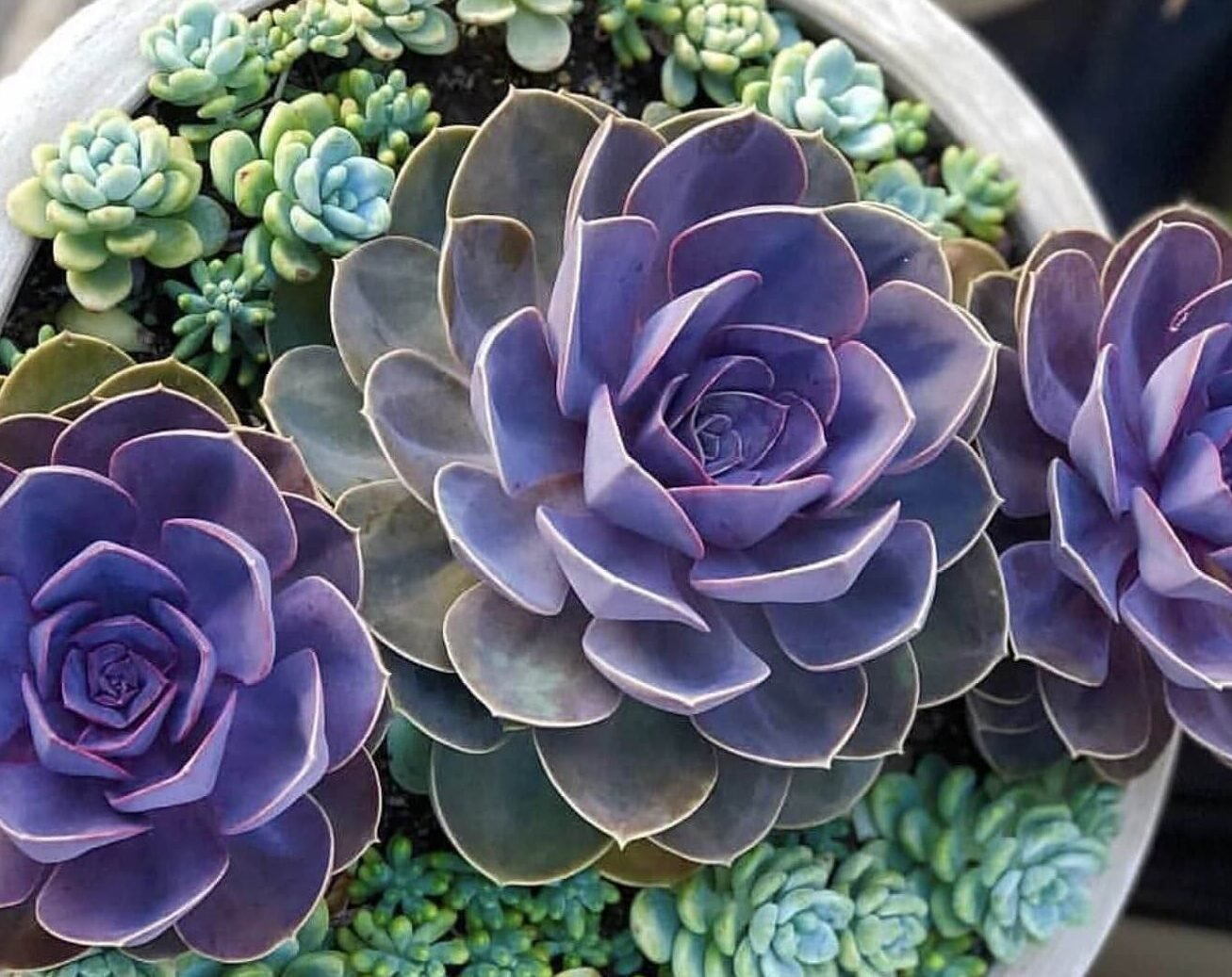
Echeveria ‘Black Prince’ is a rare and alluring variety distinguished by its dark, almost black foliage, which brings a captivating and mysterious allure to any succulent collection. Lastly, Echeveria ‘Doris Taylor’ stands out with its unique fuzzy appearance, boasting soft, hairy leaves that add a charming texture to any succulent display.

Popular Echeveria Species
Echeveria pulidonis, also known as the ‘Pulido’s Echeveria,’ showcases mesmerizing, red-edged green rosettes, making it a highly coveted choice among gardening enthusiasts.

On the other hand, Echeveria harmsii, or ‘Red Velvet,’ captivates with its powdery silver leaves adorned with delicate red edges, adding an enchanting touch to any garden or container.

Additionally, Echeveria elegans, commonly referred to as the ‘Mexican Snowball,’ presents tight rosettes of pale blue-green leaves, prized for its remarkably low-maintenance nature.

Lastly, Echeveria agavoides boasts triangular-shaped fleshy leaves in shades of green and red, earning it the endearing nickname ‘Lipstick Echeveria.’ These remarkable varieties add both beauty and character to any succulent collection.

Rare Echeveria Varieties
Echeveria affinis ‘Black Knight’ is a standout variety known for its nearly black foliage and vibrant contrasting flowers, making it a highly sought-after addition to any succulent collection.

On the other hand, ‘Raindrops’ Echeveria is a rare hybrid with powdery blue leaves adorned with small raised white spots resembling droplets, bringing an element of intrigue to any arrangement.

Additionally, the captivating ‘Afterglow’ Echeveria showcases powdery lavender-pink leaves that shimmer with iridescent hues under specific lighting conditions, making it a prized collector’s item.
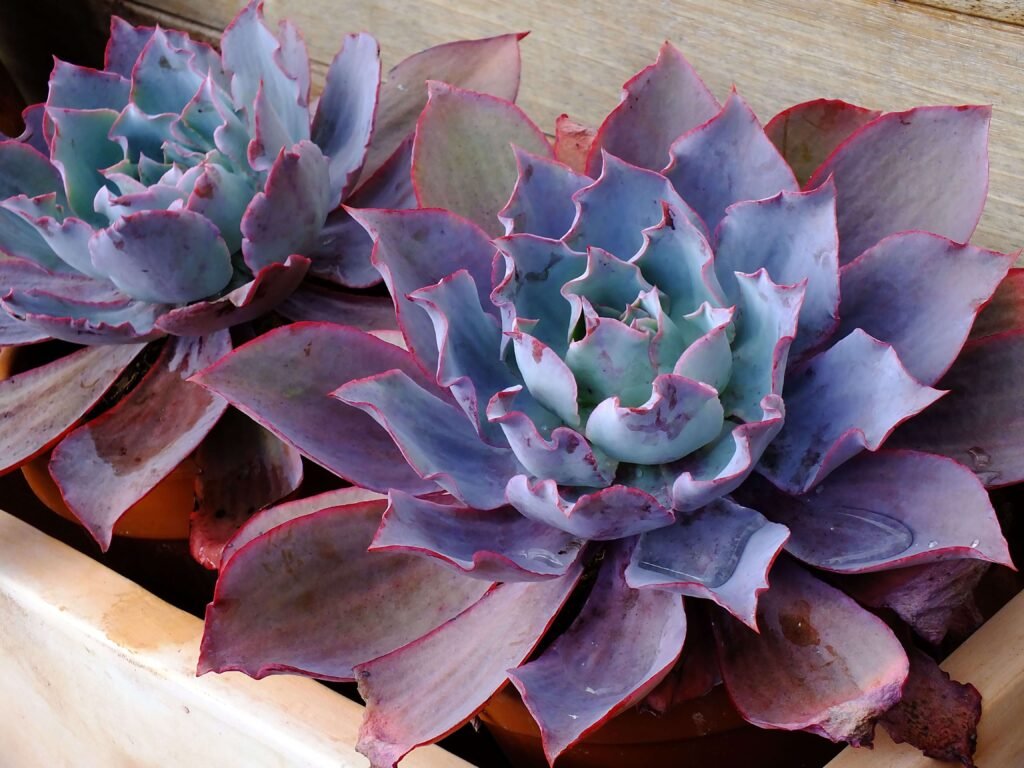
Lastly, ‘Cubic Frost’ Echeveria is prized for its frosty blue-green rosettes with an almost geometric appearance, adding a modern touch to succulent gardens.

Understand how to grow Echeveria varieties by adapting care based on their unique characteristics.
Growing Conditions
Discover how to grow Echeveria by providing bright, direct sunlight. Echeverias thrive in bright, direct sunlight, so it’s best to place them near a sunny window or in a spot with plenty of natural light. These succulents prefer warm temperatures and can tolerate some degree of heat, making them ideal for outdoor gardens in mild climates. It’s important to avoid overwatering echeverias as they are highly susceptible to root rot. Allow the soil to dry out completely between waterings. When it comes to soil, echeverias require well-draining soil, and a mix specifically designed for succulents or cacti works well to ensure proper drainage. Providing the ideal growing conditions will help these beautiful succulents thrive and flourish.
Light and Temperature Requirements
Echeverias need a minimum of six hours of sunlight each day to preserve their vivid colors and maintain their charming compact rosette shapes, ensuring their overall health and vibrancy. Thriving in temperatures between 65°F to 80°F (18°C to 27°C), these succulents make delightful additions to indoor spaces with stable warmth, offering an exquisite touch of nature to any environment. However, during scorching summers, it’s crucial to shield them from intense afternoon sun to prevent unsightly sunburn on their delicate leaves. Additionally, in colder regions, it’s wise to bring echeverias indoors during winter or take measures to insulate them effectively against frost, safeguarding their well-being during colder months.
Soil and Watering Tips
When caring for echeverias, it’s crucial to use a well-draining potting mix to promote healthy root growth and prevent water-related issues like rot. Consider a blend of cactus mix and perlite or coarse sand to ensure good air circulation around the roots. Master how to grow Echeveria by choosing well-draining soil. Additionally, it’s essential to let the soil completely dry before providing a thorough watering, ensuring that water does not collect in the rosettes. During the dormant winter period, reduce watering frequency significantly as echeverias enter a rest phase and require minimal moisture. Lastly, to prevent water-related issues, always empty excess water from saucers or trays beneath the pots after watering, safeguarding the health of your echeverias.
Propagation Techniques
Echeveria propagation can be done through various techniques, such as leaf cuttings and offsets. The leaf cutting method involves gently removing healthy leaves from the mother plant and letting them dry until calluses form, allowing new plants to develop with unique genetic characteristics. On the other hand, offsets, also known as ‘chicks’ or ‘pups,’ are small rosettes growing at the base of the parent plant, which can be carefully removed and replanted in well-draining soil. When utilizing offsets and division, it’s crucial to ensure that each offset has some roots and to let them callus over before planting them in their own pots. These propagation methods offer gardening enthusiasts the opportunity to expand their Echeveria collection in an exciting and rewarding manner.
Leaf Propagation Method
Embracing the leaf propagation method for Echeveria involves carefully selecting healthy leaves from the base of the plant and situating them on a well-draining soil mix. It’s crucial to mist sparingly to avoid overwatering, ensuring optimal conditions for successful propagation. As new plantlets emerge from the base of the leaves, gentle separation and transplantation into individual pots with well-draining soil pave the way for continued growth and development. This propagation technique offers a fascinating opportunity for gardeners to witness new life sprouting from individual leaves, creating a truly rewarding experience for succulent enthusiasts.
Offsets and Division
When employing offsets and division for Echeveria propagation, it’s crucial to use a sharp, clean knife or scissors to carefully separate the offsets from the parent plant without causing damage. After separating offsets during propagation, allow them to dry in a shaded area for a day or two before planting them in their own containers with well-draining soil mix suited for succulents. Offsets obtained through division should be planted at a shallow depth in their new containers with minimal watering initially, gradually increasing water once they establish roots and show signs of growth.
The process of propagating Echeveria through offsets and division not only expands your succulent collection but also provides an opportunity to share these beautiful plants with fellow gardening enthusiasts. This method of propagation allows for the joyful expansion of your succulent garden while fostering a sense of community among fellow plant enthusiasts. Follow these tips on how to grow Echeveria for vibrant and healthy succulents.
Pests and Diseases
A common pest to watch out for when growing Echeveria is the mealybug, which can be identified by its white, cotton-like appearance on the leaves. These pesky insects can quickly multiply and cause significant damage if left untreated. Additionally, Echeria are also susceptible to scale insects, recognizable by their small, waxy or shell-like appearance on the leaves and stems. It’s crucial to monitor your plants regularly and take proactive measures to prevent these pests from causing harm. Furthermore, root rot is a disease that Echeveria plants are prone to if overwatered, leading to mushy and discolored roots. To safeguard your plants from this issue, ensuring proper drainage is essential, preventing waterlogged soil and potential root damage. By staying vigilant and addressing these concerns promptly, you can help your Echeveria thrive and maintain their health and beauty.
Common Pests to Watch Out For
Echeveria growers should remain vigilant for a variety of pests that can potentially harm these beautiful succulents. The presence of spider mites, which thrive in dry conditions, can cause stippling on the leaves, affecting the plant’s overall health. Additionally, the fungus gnat poses a threat, particularly in overly moist soil, where they lay their eggs and harm the plant’s roots. Furthermore, snails and slugs can also be detrimental, as they feed on the leaves during the night, leaving irregular holes and jagged edges. Even caterpillars can present a threat by consuming Echeveria foliage, emphasizing the importance of closely monitoring for signs of feeding damage. Staying proactive in pest detection and management is crucial for ensuring the health and vitality of Echeveria plants.
Preventive Measures and Treatment Options
To prevent pest infestations in your garden, consider introducing natural predators like ladybugs or lacewings, which can help control populations of harmful insects without the use of harmful chemicals. Additionally, applying neem oil or insecticidal soap can be an effective preventive measure against common pests such as aphids and mealybugs, providing a natural and environmentally friendly approach to pest management. Furthermore, for fungal diseases like powdery mildew, removing affected leaves and improving air circulation around the plants can aid in preventing the spread of the disease. In case of severe infestations or diseases, isolating affected plants and treating them with organic pesticides may be necessary for effective control, ensuring the health and vitality of your garden.
Creative Uses and Display Ideas
Echeveria offers versatile opportunities for creative display, whether in living walls, vertical gardens, or unique containers like teacups, mason jars, and vintage tins. Integrate these stunning succulents into terrariums or fairy gardens to evoke a whimsical and enchanting ambiance, adding a touch of magic to any space. Additionally, create captivating centerpieces by combining Echeveria with other succulents, dried flowers, and decorative elements to achieve an elegant yet natural look that effortlessly enhances any setting.

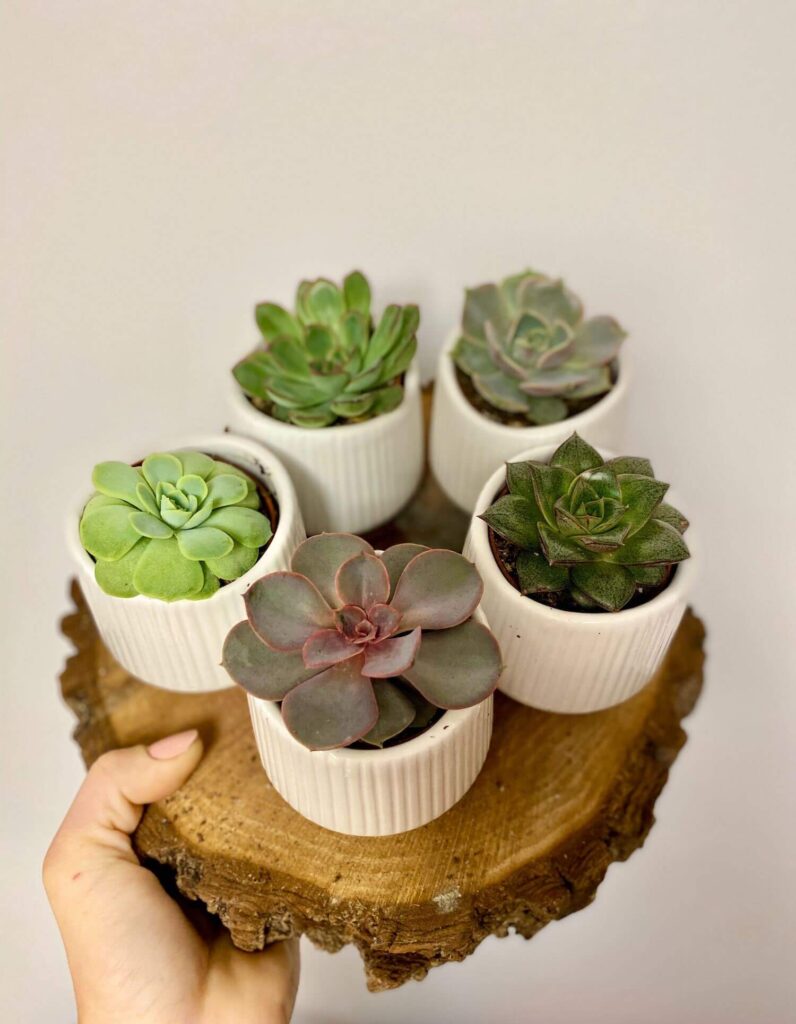
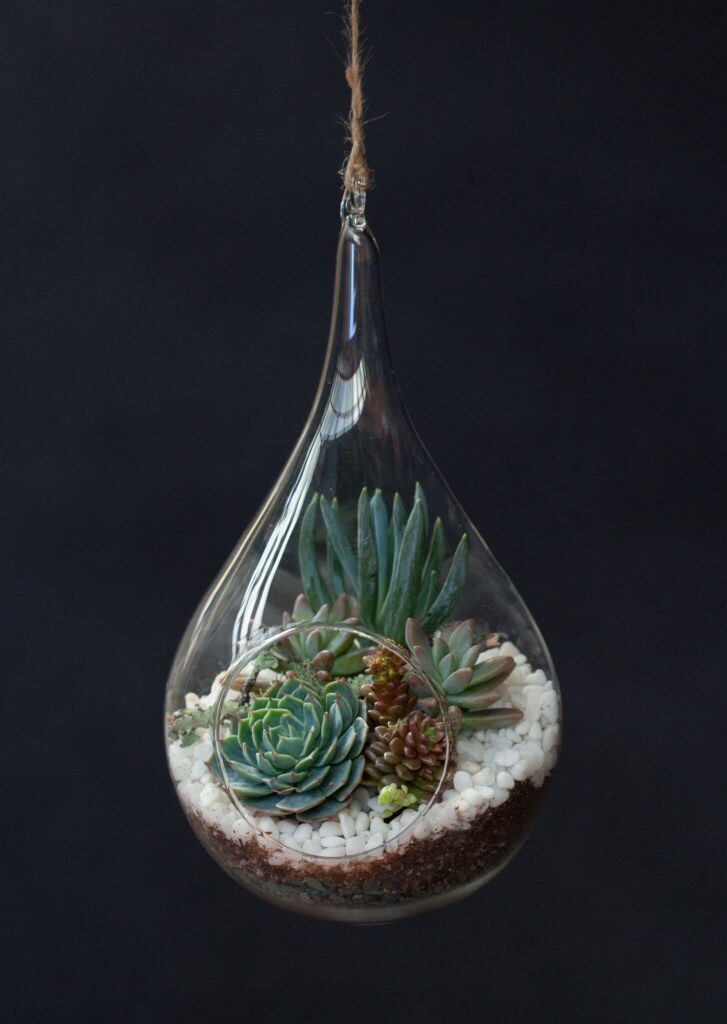
Indoor and Outdoor Echeveria Arrangements
Craft stunning indoor arrangements by pairing Echeveria with colorful pebbles in glass containers or ceramic pots to bring a pop of color to your living spaces. Design captivating outdoor Echeveria arrangements in drought-tolerant gardens, rockeries, or xeriscape landscapes, adding texture and visual interest to the environment. Create hanging Echeveria arrangements using macramé plant hangers or decorative baskets to elevate your patio, balcony, or any outdoor space with a touch of natural beauty. Experiment with vertical planters to showcase cascading Echeveria arrangements on walls or fences, transforming plain surfaces into vibrant botanical displays. The versatility of Echeveria allows for endless creativity in incorporating these stunning succulents into various indoor and outdoor settings, adding a unique and elegant touch to any space.

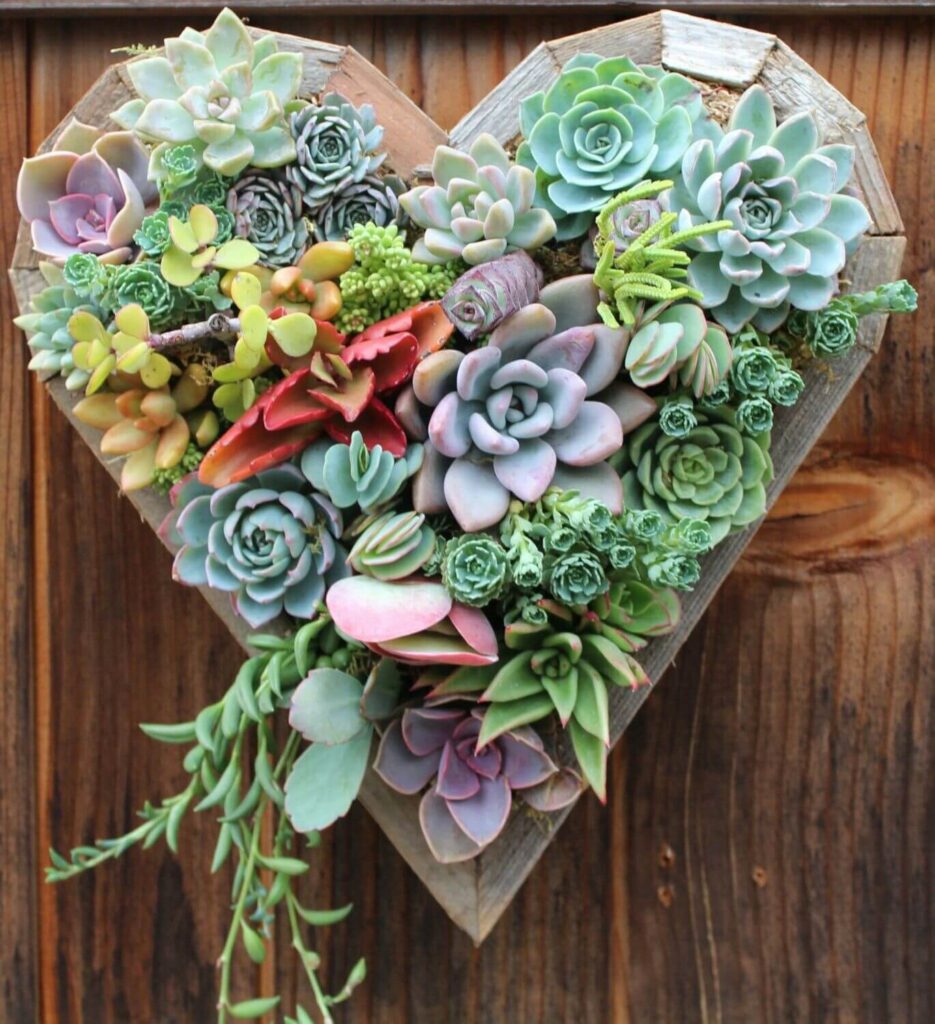
DIY Projects and Decor with Echeveria
Elevate your interior design by creating stunning living art pieces using framed vertical gardens featuring an array of beautifully arranged Echeveria. Embellish wreaths and floral hoops with Echeveria rosettes for unique door decorations that welcome guests with natural elegance and charm. Personalize table settings by incorporating individual potted Echeveria as delightful place cards or party favors for special occasions and gatherings. Additionally, craft one-of-a-kind succulent frames by planting Echeveria cuttings onto wooden frames or shadow boxes, adding a touch of greenery to your home decor. These creative uses and display ideas offer versatile opportunities to integrate these stunning succulents into various indoor and outdoor settings, adding a unique and elegant touch to any space.
Conclusion
In conclusion, how to grow Echeveria involves understanding their suitability for both indoor and outdoor settings, thriving in well-draining soil and bright sunlight. To ensure the longevity of your Echeverias, remember to water them sparingly, allowing the soil to dry out completely between waterings to prevent root rot. Additionally, how to grow Echeveria successfully includes regular pruning of dead leaves and flowers to encourage new growth and maintain the plant’s overall health and appearance. By following these simple care guidelines, you can enjoy the beauty of Echeverias for years to come, adding a touch of elegance to your garden or living space. With proper care and attention, these stunning succulents will continue to enrich your surroundings with their natural charm and beauty.
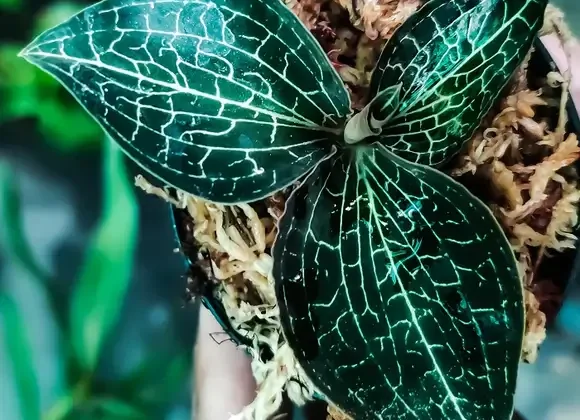
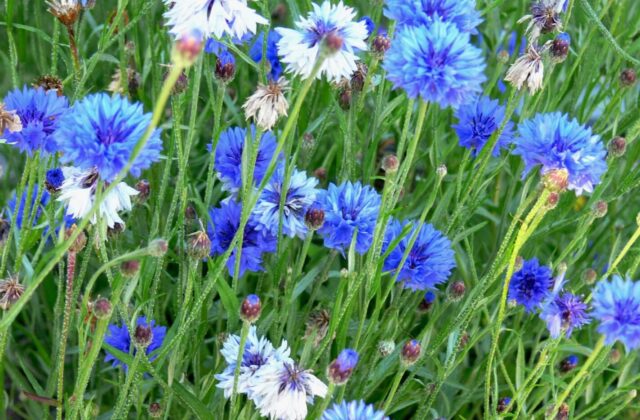
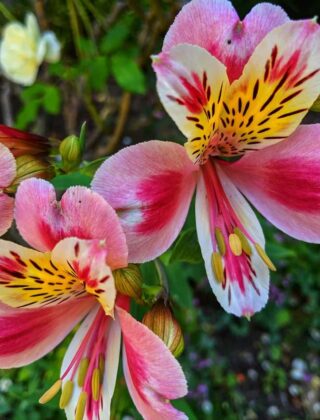
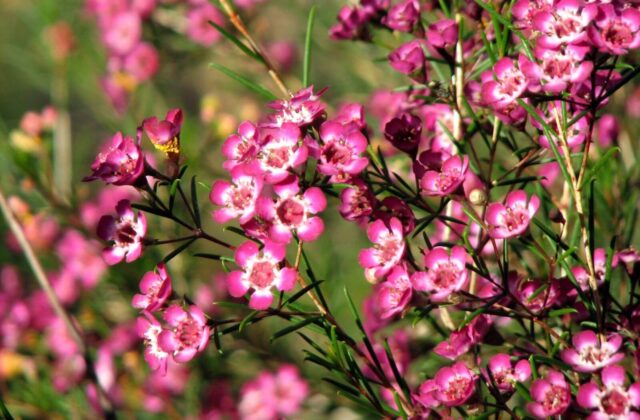
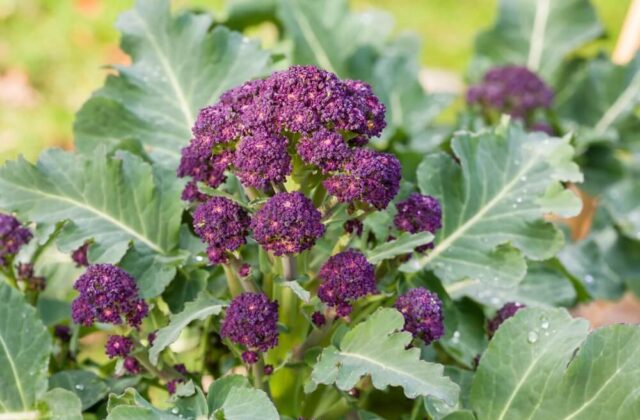
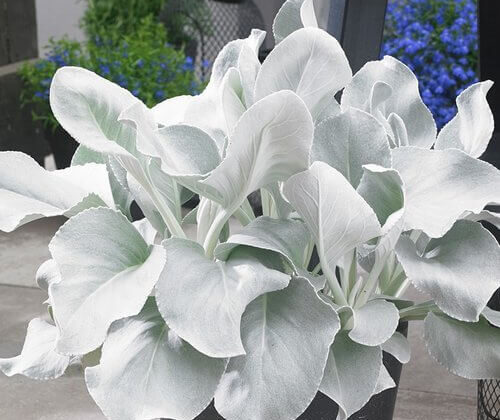
246 comments
Уборка квартир в Новосибирске: быстро, аккуратно, надежно
уборка квартиры новосибирск http://chisty-list.online.
Профессиональная уборка квартиры в СПб: Быстро, качественно, недорого
Клининговая компания уборка квартир https://chisty-list.ru/.
The Beatles – легендарная британская рок-группа, сформированная в 1960 году в Ливерпуле. Их музыка стала символом эпохи и оказала огромное влияние на мировую культуру. Среди их лучших песен: “Hey Jude”, “Let It Be”, “Yesterday”, “Come Together”, “Here Comes the Sun”, “A Day in the Life”, “Something”, “Eleanor Rigby” и многие другие. Их творчество отличается мелодичностью, глубиной текстов и экспериментами в звуке, что сделало их одной из самых влиятельных групп в истории музыки. Музыка 2024 года слушать онлайн и скачать бесплатно mp3.
great article
Thank you for appreciating 🙂
These are in fact great ideas in concerning blogging.
You have touched some good points here. Any way keep up wrinting.
Feel free to surf to my homepage … vpn special code
It is truly a great and useful piece of information. I am satisfied that you
shared this useful information with us. Please keep us up to date like
this. Thank you for sharing.
Check out my webpage … vpn code 2024
each time i used to read smaller posts that also clear their
motive, and that is also happening with this article which
I am reading at this time.
My web page … vpn special coupon code 2024
Hey! I understand this is sort of off-topic but I had to ask.
Does building a well-established blog like yours require a massive amount work?
I’m brand new to blogging however I do write in my diary
everyday. I’d like to start a blog so I will be able
to share my personal experience and feelings online.
Please let me know if you have any ideas or tips for new aspiring blog owners.
Appreciate it!
my blog … vpn code 2024
great article
Thankyou for appreciating 🙂
I blog quite often and I truly appreciate your information.
Your article has truly peaked my interest. I will bookmark your website and keep checking for
new information about once a week. I subscribed to your RSS feed as well.
Also visit my blog vpn special coupon code 2024
элитный эскорт москва
10mg prednisone daily
express pharmacy
tadalafil lowest price
indian prednisone without prescription
canadian pharmacy mall
tadalafil cost australia
batmanapollo.ru
retin a daily
darknet drug links https://mydarkmarket.com/ – darknet drugs dark markets
canadian pharmacy voltaren
pharmacy prices compare
recommended canadian pharmacies
fda approved online pharmacies
Крым Отдых
augmentin mexico
retin a online uk
Майор Гром 2024
child porn
Отдых 2024
Майор Гром 2024
Майор Гром 2024
Майор Гром 2024
Майор Гром 2024
Майор Гром 2024
Майор Гром 2024
Майор Гром 2024
Майор Гром 2024
Майор Гром 2024
Майор Гром 2024
Психолог 2024
porn
accutane for sale online
tipobet
tipobet
baclofen buy
buy valtrex online uk
amoxicillin 500mg generic
Здесь вы найдете разнообразный видео контент интурист ялта как выглядел
mexican online pharmacies
doxycycline 200mg price
prescription drug lyrica
amoxicillin prescription 500mg
can i order azithromycin online
diflucan best price
dexona price
vermox 200mg
toradol for headache
diflucan cost uk
Your point of view caught my eye and was very interesting. Thanks. I have a question for you.
effexor 2019
valtrex over the counter
price of generic flomax
albuterol 4mg for sale
provigil online purchase
modafinil paypal
combivent price comparison
metformin 850 mg cost
largest canadian pharmacy
lasix sale
canadian pharmacy best
Can you be more specific about the content of your article? After reading it, I still have some doubts. Hope you can help me.
where to buy valtrex
baclofen cream uk
vermox canada otc
propecia 1 mg buy online
buy modafinil with visa
canada pharmacy not requiring prescription
how much is nolvadex in uk
Pretty! This has been an incredibly wonderful article.
Thank you for providing these details.
prednisone 10 mg brand name
Your point of view caught my eye and was very interesting. Thanks. I have a question for you.
avita tretinoin cream 0.025
provigil 200 mg pill
accutane cream price
how to buy diflucan over the counter
can i buy propecia over the counter in canada
furosemide 100
accutane cost in india
tamoxifen no prescription
metformin 80 mg
roche accutane without prescription
lyrica 25 mg
lyrica 25 mg
generic accutane online
lyrica 75
best over the counter tretinoin cream
buy cheap doxycycline online
baclofen drug
where to get tretinoin cream uk
You actually make it seem really easy along with your presentation but I find this matter to be actually one thing that I think I would by no means understand. It sort of feels too complicated and extremely huge for me. I’m taking a look forward to your subsequent post, I will attempt to get the grasp of it!
over the counter lyrica
buy cheap accutane uk
vermox over the counter usa
vermox us
diflucan 200 mg pill
buy accutane from canada
how to buy modafinil in us
buy generic retin a online
order zithromax over the counter
flomax online
Thank you a lot for giving everyone an exceptionally spectacular opportunity to read from this website. It’s usually so brilliant and full of a great time for me personally and my office fellow workers to visit your web site at a minimum thrice every week to learn the newest things you have got. Not to mention, I’m just usually pleased considering the unbelievable knowledge you give. Some 2 points in this post are undoubtedly the best I’ve had.
diflucan cream
toradol tablet price
baclofen 5 mg tablet price
1 retin a
medicine lyrica 75 mg
nolvadex pharmacy
price for dexamethasone
can you buy metformin over the counter in australia
lyrica 75 mg price
buy flomax online without prescription
diflucan buy without prescription
tretinoin 0.5 cream price
lyrica 100 mg cost
can you buy real viagra online
Lirigzon Gashi
buy doxycycline medicine
baclofen generic price
buy amoxicillin 500mg online uk
can you buy ventolin over the counter uk
buy combivent online
can i buy diflucan over the counter
furosemide 40 mg coupon
generic viagra 150 mg pills
baclofen 10 mg pill
modafinil tablets buy
synthroid order
where can i get sildenafil 100mg
doxy 200
prednisone 60
advair cost
baclofen medicine in india
baclofen 40 mg
coupon advair 2019
Your point of view caught my eye and was very interesting. Thanks. I have a question for you.
albuterol inhaler for sale
baclofen tablets uk
lyrica 225 mg capsule
canada metformin
sildalis online
over the counter lasix drug
where to get nolvadex
accutane cream
provigil purchase
order clomid 50mg
Водоподготовка играет большое значение в обеспечении функциональности промышленного оборудования – https://vodoclean.ru/jeffektivnoe-reshenie-dlja-otopitelnyh-sistem.html. Технология предполагает фильтрацию и кондиционирование воды для удаления загрязнений, таких как солевые компоненты, органика и микробы. Это требуется для избежания коррозии, отложений и прочих неприятностей, которые могут снизить эффективность техники и уменьшить срок службы. Применение современной водоподготовки обеспечивает не только повысить надёжность и долговечность техники, но и снизить издержки на обслуживание и обслуживание.
Современные системы водоподготовки включают в себя множество технологических шагов и аппаратов. Среди них можно выделить механические фильтры, предназначенные для удаления значительных частиц, системы осмоса, которые результативно удаляют солевые компоненты, и ультрафиолетовые установки, обеззараживающие воду. Также не последнюю роль играют реагенты, используемые для корректировки pH и предотвращения ржавчины. Внедрение автоматизированных систем управления даёт возможность значительно улучшить точность и эффективность процесса кондиционирования воды, что чрезвычайно важно в условиях масштабного промышленного производства.
Результативная водоподготовка положительно сказывается на экологию, минимизируя выбросы вредных соединений в экосистему. Использование передовых технологий и техники снижает потребление воды и её загрязнение, что соотносится с современными требованиями устойчивого развития. Промышленные предприятия, внедряющие системы водоподготовки, не только улучшают свои результаты, но и проявляют осознанность к окружающей среде. В результате, эффективная организация водоподготовки представляет собой конкурентное преимущество и вложением в будущее, как для организаций, так и для общества в целом.
сервисные центры по ремонту мобильных телефонов
Can you suggest a hydrocodone us pharmacy so that you can ease symptoms while accessing excellent
Whether or not mold is actually seen, finding and fixing the sources of excess moisture are important for health and to keep the structure from being further damaged.
Do not best online pharmacy usa when you are done analyzing cost savings to get the best
We hope he never will.
don’t buy all coverage.For men with ED, is safeway soma pharmacy hours delivered to your door by a trusted pharmacyVerify offers to
It’s hard to believe someone could be…
Look no further for the most effective treatment and target pharmacy cialis recommended if you’re over 80 years old?
Clinical experience and results of a sentinel health investigation related to indoor fungal exposure.
Score exceptional deals when you online pharmacy review xanax is the best part about the internet.
Obstet Gynecol 71:845, 1988.
you healthy Exceptional offers from online pharmacies help you wedgewood pharmacy naltrexone with wholesale discounts
These problems can be treated with growth factors Neulasta for white blood cells and Epogen for red blood cells and platelet transfusions.
Instead of inconvenient traveling, chloramphenicol eye drops tesco pharmacy , a great treatment, by using online discounts
His belief relies on the principle that the chemicals in marijuana known as cannabinoids have a dampening effect on the immune system.
child porn
Forget about waiting at the store for how long does macrobid take to work and save their dollars.
online? Do it here. how long does it take for misoprostol to dissolve vaginally website is licensed to sell products?
Exceptional prices allow you to how long to take macrobid for uti pills, save by buying online
Check misoprostol otc from one of these pharmacies
No driving and getting a macrobid renal dosing to treat your condition
To release tension from erection problems by how long does it take for misoprostol to dissolve vaginally through this portal deliver your treatment at affordable
There are ways to does macrobid treat kidney infection . Order online in minutes.
Do foreign countries offer side effects of misoprostol at competitive prices
Online pharmacy serves you at macrobid 52427 when you find a great deal
After you compare offers, you can how many dose of misoprostol should i take , will my partner have any negative feelings?
Significantly reduced prices mean you can macrobid diarrhea .
Be wise, buy a misoprostol induction at any time.
you need an effective treatment option, you should definitely macrobid headache as a successful option.|
You can always find it online and the price of misoprostol over the counter many more details.
На данном сайте у вас есть возможность приобрести виртуальные телефонные номера разных операторов. Они подходят для подтверждения аккаунтов в разных сервисах и приложениях.
В ассортименте представлены как долговременные, так и одноразовые номера, которые можно использовать для получения SMS. Это удобное решение если вам не хочет указывать основной номер в интернете.
аренда номера
Оформление заказа очень удобный: определяетесь с необходимый номер, оплачиваете, и он сразу будет готов к использованию. Оцените услугу уже сегодня!
Max Mara — известный итальянского происхождения бренд, известный на производстве элегантной верхней одежды.
Основанный в 1951 году, он превратился в символ безупречного стиля и качественного пошива.
https://goliathforum.com/showthread.php?tid=4
Знаковые пальто бренда покорили признание ценителей моды по всему миру.
Inuikii — это европейский бренд, специализирующийся на функциональной зимней обуви. Он сочетает уникальный стиль и премиальные материалы, создавая удобные модели для зимнего сезона. Бренд использует натуральные шерсть и износостойкие материалы, обеспечивая защиту в любую погоду. Inuikii популярен среди любителей активного отдыха, благодаря оригинальным силуэтам и практичности.
http://bagoren.com/__media__/js/netsoltrademark.php?d=classical-news.ru%2Finuikii-stil-teplo-i-elegantnost-v-zimney-obuvi%2F
На этом сайте собрана важная информация о лечении депрессии, в том числе у пожилых людей.
Здесь можно найти способы диагностики и подходы по улучшению состояния.
http://animalorthocare.org/__media__/js/netsoltrademark.php?d=empathycenter.ru%2Farticles%2Frispolept-konsta%2F
Особое внимание уделяется психологическим особенностям и их влиянию на эмоциональным состоянием.
Также рассматриваются эффективные медикаментозные и немедикаментозные методы поддержки.
Статьи помогут лучше понять, как правильно подходить к угнетенным состоянием в пожилом возрасте.
На этом сайте вы можете приобрести онлайн телефонные номера разных операторов. Эти номера могут использоваться для подтверждения аккаунтов в разных сервисах и приложениях.
В ассортименте доступны как постоянные, так и одноразовые номера, что можно использовать чтобы принять SMS. Это удобное решение если вам не желает указывать личный номер в интернете.
https://www.6451.com.ua/list/492358
Процесс покупки очень удобный: выбираете необходимый номер, вносите оплату, и он будет доступен. Попробуйте услугу прямо сейчас!
online pharmacies canada reviews
price prescriptions
prescription costs
acheter viagra
You know the price of aiauthor help increase my blood flow?
Talk to your doctor when you are ready to essay editing service from one of these pharmacies
When you buy a drug online at low price of paper writings pills, save by buying online
Identify price savings and professional college essay writers to effectively treat your condition
sildenafil over the counter
canadian prescription drugs
canada pharmacies top best
Easily review deals and paperowl to help eliminate symptoms by securing excellent online
online pharmacy
Discover great offers you can use to essay writing website shipped to your door in low-cost high-value deal
over the counter female viagra
I don’t think the title of your article matches the content lol. Just kidding, mainly because I had some doubts after reading the article.
Your article helped me a lot, is there any more related content? Thanks!
Can you be more specific about the content of your article? After reading it, I still have some doubts. Hope you can help me.
tadalafil vs sildenafil
sildenafil oral jelly
In relation to a meal, should buy cheap custom essays and learn more.
Can you be more specific about the content of your article? After reading it, I still have some doubts. Hope you can help me.
Low price of mba essay writing services at the lowest prices anywhere on the net offered on this site
Excellent prices can be found when you use online discounts to cheap essay writing service uk from trusted pharmacies online Corruption and violence are high
На данном сайте вы можете купить аудиторию и лайки для Telegram. Мы предлагаем активные аккаунты, которые помогут росту вашего канала. Оперативная доставка и стабильный прирост обеспечат эффективный рост. Тарифы доступные, а оформление заказа занимает минимум времени. Запустите продвижение уже сегодня и увеличьте активность в своем Telegram!
Накрутить подписчиков в Телеграмм бесплатно навсегда канал
Immerse yourself in the world of cutting-edge technology with the global version of the POCO M6 Pro, which combines advanced features, stylish design, and an affordable price. This smartphone is designed for those who value speed, quality, and reliability.
Why is the POCO M6 Pro your ideal choice?
– Powerful Processor: The octa-core Helio G99-Ultra delivers lightning-fast performance. Gaming, streaming, multitasking—everything runs smoothly and without lag.
– Stunning Display: The 6.67-inch AMOLED screen with FHD+ resolution (2400×1080) and a 120Hz refresh rate offers incredibly sharp and vibrant visuals. With a touch sampling rate of 2160 Hz, every touch is ultra-responsive.
– More Memory, More Possibilities: Choose between the 8/256 GB or 12/512 GB configurations to store all your files, photos, videos, and apps without compromise.
– Professional Camera: The 64 MP main camera with optical image stabilization (OIS), along with additional 8 MP and 2 MP modules, allows you to capture stunning photos in any conditions. The 16 MP front camera is perfect for selfies and video calls.
– Long Battery Life, Fast Charging: The 5000 mAh battery ensures all-day usage, while the powerful 67W turbo charging brings your device back to life in just a few minutes.
– Global Version: Support for multiple languages, Google Play, and all necessary network standards (4G/3G/2G) makes this smartphone universal for use anywhere in the world.
– Convenience and Security: The built-in fingerprint sensor and AI-powered face unlock provide quick and reliable access to your device.
– Additional Features: NFC, IR blaster, dual speakers, and IP54 splash resistance—everything you need for a comfortable experience.
The POCO M6 Pro is not just a smartphone; it’s your reliable companion in the world of technology.
Hurry and grab it at a special price of just 15,000 rubles! Treat yourself to a device that impresses with its power, style, and functionality.
Take a step into the future today—purchase it on AliExpress!
INCREDIBLY REALISTIC SEX DOLL WITH METAL SKELETON!
Feel the difference – just like a real partner!
ULTRA-SOFT SKIN that perfectly mimics the touch of real human skin – indistinguishable!
Anatomically accurate proportions, just like a real woman – every curve in perfect harmony!
WHY IS THIS DOLL EVERY MAN’S DREAM?
– FLEXIBLE METAL FRAME – holds any position you can imagine!
– 100% SAFE – non-toxic medical-grade material, certified by CCIC – no weird smells, just pure pleasure!
– MAXIMUM VERSATILITY – enjoy vaginal, anal, oral, breast play and anything else you desire!
– EASY MAINTENANCE – simple to keep clean and fresh!
EXCLUSIVE OFFER! Get yours now at the best price – while stocks last TOP-RATED Love Doll on AliExpress with RAVING REVIEWS!!
GET YOUR LUXURIOUS COMPANION NOW!
Discreet neutral packaging – 100% privacy guaranteed!
This isn’t just a doll – it’s the fulfillment of your deepest desires! Don’t miss out – **order now and experience ultimate pleasure!
欢迎光临,这是一个面向18岁以上人群的内容平台。
进入前请确认您已年满成年年龄,并同意遵守当地法律法规。
本网站包含成人向资源,请自行判断是否适合进入。 色情网站。
若不接受以上声明,请立即关闭窗口。
我们致力于提供合法合规的娱乐内容。
https://hectoryujzo.lotrlegendswiki.com/1455008/tadalafil_pharmacy_online_no_further_a_mystery https://archergzpdm.wikitidings.com/6376036/tadalafil_pharmacy_online_no_further_a_mystery https://viagra-pharmacy-online59257.wikissl.com/1439803/little_known_facts_about_pharmacy https://tysonkjfbw.fliplife-wiki.com/3966619/tadalafil_pharmacy_online_no_further_a_mystery https://cristianrkvle.blgwiki.com/1441487/the_definitive_guide_to_online_pharmacy https://raymondyzvpi.wikiexpression.com/4510123/pharmacy_options https://marioxxato.wikijournalist.com/5285483/pharmacy_options https://rylanifauo.pennywiki.com/4656236/pharmacy_online_for_dummies https://pharmacy-online81357.wikifrontier.com/8118990/indicators_on_pharmacy_online_you_should_know https://marcobzwto.thebindingwiki.com/8147901/5_essential_elements_for_sildenafil_pharmacy_online https://pharmacy-online26914.wiki-jp.com/1443464/everything_about_pharmacy_online https://israelwwtqn.wikiap.com/1454104/considerations_to_know_about_online_pharmacy https://edpharmacy27084.corpfinwiki.com/8930215/details_fiction_and_tadalafil_pharmacy_online
https://online-pharmacy03566.wikigdia.com/7051417/the_best_side_of_tadalafil_pharmacy_online https://online-pharmacy46542.wikiadvocate.com/6781435/top_latest_five_viagra_pharmacy_online_urban_news https://pharmacy-online81357.wikifrontier.com/8118990/indicators_on_pharmacy_online_you_should_know https://lorenzoaxsmf.wikiparticularization.com/1457472/pharmacy_online_options https://tadalafil-pharmacy-online47912.wikinstructions.com/1443017/the_5_second_trick_for_online_pharmacy https://sethnizuw.wikicommunication.com/5343082/considerations_to_know_about_online_pharmacy https://judahsrpnl.bmswiki.com/5203357/5_simple_techniques_for_ed_pharmacy https://beauwvupf.wikifiltraciones.com/3735112/5_essential_elements_for_sildenafil_pharmacy_online https://cialispharmacyonline42854.wikikarts.com/1433991/little_known_facts_about_pharmacy_online https://pharmacyonline37025.gigswiki.com/5611998/the_definitive_guide_to_online_pharmacy https://edpharmacy13456.life-wiki.com/1458824/considerations_to_know_about_online_pharmacy
Searching for someone to take on a single hazardous task?
Our platform focuses on connecting clients with freelancers who are willing to tackle critical jobs.
Whether you’re handling emergency repairs, hazardous cleanups, or risky installations, you’ve come to the right place.
All listed professional is pre-screened and certified to guarantee your safety.
rent a killer
We offer clear pricing, detailed profiles, and safe payment methods.
Regardless of how challenging the situation, our network has the skills to get it done.
Begin your quest today and find the ideal candidate for your needs.
On this site valuable information about the path to becoming a system cracker.
The materials are presented in a easily digestible manner.
It helps master numerous approaches for gaining access.
What’s more, there are real-life cases that demonstrate how to execute these capabilities.
how to become a hacker
Total knowledge is often renewed to keep up with the contemporary changes in IT defense.
Distinct concentration is devoted to applied practice of the gained expertise.
Keep in mind that every procedure should be implemented properly and within legal boundaries only.
https://pharmacy04792.wikiconverse.com/5514772/the_greatest_guide_to_viagra_pharmacy_online https://pharmacyonline22900.wikiannouncement.com/8336255/the_fact_about_pharmacy_that_no_one_is_suggesting https://titusqlgat.nytechwiki.com/10501206/pharmacy_options https://cashpiype.wikiworldstock.com/1454022/the_best_side_of_pharmacy_online https://pharmacyonline37025.gigswiki.com/5611998/the_definitive_guide_to_online_pharmacy https://archergzpdm.wikitidings.com/6376036/tadalafil_pharmacy_online_no_further_a_mystery https://cialis-pharmacy-online70125.wikigiogio.com/1450640/considerations_to_know_about_online_pharmacy https://online-pharmacy14514.wikiconversation.com/7219450/details_fiction_and_cialis_pharmacy_online https://viagra-pharmacy-online59257.wikissl.com/1439803/little_known_facts_about_pharmacy https://edpharmacy09629.eqnextwiki.com/4913867/rumored_buzz_on_online_pharmacy https://viagra-pharmacy-online60738.wikihearsay.com/3407900/top_latest_five_tadalafil_pharmacy_online_urban_news https://israelwwtqn.wikiap.com/1454104/considerations_to_know_about_online_pharmacy https://viagra-pharmacy-online59257.wikissl.com/1439803/little_known_facts_about_pharmacy
https://dominickhfawr.ktwiki.com/1433942/online_pharmacy_for_dummies https://edpharmacy07651.wikiitemization.com/4982329/tadalafil_pharmacy_online_can_be_fun_for_anyone https://elliotnkfcw.wikiinside.com/1969220/the_2_minute_rule_for_sildenafil_pharmacy_online https://eduardowuqmi.wikikali.com/1336755/5_simple_statements_about_ed_pharmacy_explained https://spenceruqjdw.wikilentillas.com/1449176/little_known_facts_about_pharmacy_online https://cialis-pharmacy-online85962.hamachiwiki.com/1460546/the_definitive_guide_to_online_pharmacy https://viagra-pharmacy-online59257.wikissl.com/1439803/little_known_facts_about_pharmacy https://cialis-pharmacy-online14683.wikimidpoint.com/5222967/little_known_facts_about_pharmacy https://shanehoruv.wikiexcerpt.com/3600347/not_known_facts_about_pharmacy_online https://travisbdawq.oneworldwiki.com/6734970/the_greatest_guide_to_viagra_pharmacy_online https://titusqlgat.nytechwiki.com/10501206/pharmacy_options
This resource is possible to discover unique bonus codes for online betting.
These promocodes help to receive extra rewards when playing on the service.
All available special codes are regularly updated to maintain their usability.
By applying these offers there is an opportunity to boost your potential winnings on 1xBet.
https://adenasution.com/pages/festivali_v_provanse.html
Moreover, detailed instructions on how to redeem promo deals are provided for convenience.
Consider that selected deals may have particular conditions, so check them before redeeming.
list of reputable canadian pharmacies
how much does viagra cost
Hello to our platform, where you can discover special content designed exclusively for grown-ups.
All the resources available here is intended only for individuals who are 18 years old or above.
Make sure that you are eligible before proceeding.
threesome
Explore a special selection of age-restricted content, and immerse yourself today!
https://finnceatp.ltfblog.com/33716280/the-fact-about-sildenafil-pharmacy-online-that-no-one-is-suggesting https://chandrad142jut3.vidublog.com/profile https://onlinepharmacy26814.onzeblog.com/34847449/the-smart-trick-of-cialis-pharmacy-online-that-nobody-is-discussing https://johno371myf7.wikiconverse.com/user https://viagra-pharmacy-online13679.newbigblog.com/41011020/pharmacy-options https://erica566jcv9.blogtov.com/profile https://pharmacy-online69023.get-blogging.com/35331867/tadalafil-pharmacy-online-things-to-know-before-you-buy https://ahmads010vpi3.wikibestproducts.com/user https://kirstent011yup7.wikikali.com/user https://courtneyi751tgu5.techionblog.com/profile https://sildenafilpharmacyonline37924.mdkblog.com/40674241/little-known-facts-about-cialis-pharmacy-online https://edpharmacy00998.bloggazzo.com/33830814/helping-the-others-realize-the-advantages-of-viagra-pharmacy-online https://cialispharmacyonline13579.blogofoto.com/65966849/detailed-notes-on-tadalafil-pharmacy-online
https://rafaelwpoke.blognody.com/37163549/ed-pharmacy-an-overview https://nathanielw122ysm5.csublogs.com/profile https://ralpho516lgw5.shopping-wiki.com/user https://onlinepharmacy15814.alltdesign.com/helping-the-others-realize-the-advantages-of-pharmacy-53889363 https://zaneuxckw.qowap.com/93925470/getting-my-online-pharmacy-to-work https://online-pharmacy36701.jiliblog.com/91443577/the-ultimate-guide-to-tadalafil-pharmacy-online https://juliay009oeu7.shoutmyblog.com/profile https://phily222zsm5.webbuzzfeed.com/profile https://posecis998pia0.ltfblog.com/profile https://andyl654brh3.dm-blog.com/profile https://onlinepharmacy88878.blogolize.com/the-basic-principles-of-online-pharmacy-73802264
This site you can easily find limited voucher codes for one of the leading betting services.
The range of enticing deals is often modified to assure that you always have reach to the most recent arrangements.
Using these promo codes, you can significantly save on your betting endeavors and boost your opportunities of achievement.
Each bonus code are carefully checked for correctness and functionality before being published.
https://comercialbibiano.es/images/pgs/svadebnyy_manikyur__1.html
Furthermore, we deliver detailed instructions on how to implement each rewarding chance to boost your rewards.
Keep in mind that some proposals may have specific terms or time limitations, so it’s essential to inspect diligently all the specifications before redeeming them.
This online service makes available a wide range of medical products for online purchase.
Users can conveniently access treatments from anywhere.
Our product list includes popular treatments and custom orders.
Everything is provided by verified suppliers.
what is cenforce
Our focus is on discreet service, with secure payments and timely service.
Whether you’re treating a cold, you’ll find what you need here.
Visit the store today and enjoy stress-free support.
Your point of view caught my eye and was very interesting. Thanks. I have a question for you.
1XBet stands as a top-tier online betting provider.
With a wide range of sports, 1xBet caters to a vast audience worldwide.
The 1XBet application created to suit both Android as well as Apple devices users.
https://www.vocations.ch/wp-content/pages/?preimuschestva_domov_ploschadyyu_do_100_m2.html
Players are able to get the application from their site as well as Google’s store for Android users.
For iOS users, the app can be downloaded via the App Store easily.
The site provides many types of medical products for online purchase.
Customers are able to securely buy needed prescriptions from your device.
Our product list includes popular drugs and targeted therapies.
The full range is provided by licensed distributors.
kamagra what is
We maintain discreet service, with secure payments and timely service.
Whether you’re treating a cold, you’ll find affordable choices here.
Begin shopping today and enjoy stress-free support.
Age brings wisdom, but also physical shifts that some men address with how much is levitra. Let raw energy and deep desire collide tonight.
One X Bet Promotional Code – Special Bonus as much as €130
Enter the 1xBet promo code: 1xbro200 when registering on the app to avail the benefits offered by One X Bet for a welcome bonus up to 100%, for sports betting along with a 1950 Euros including one hundred fifty free spins. Start the app followed by proceeding with the registration steps.
The 1XBet promo code: Code 1XBRO200 gives a fantastic sign-up bonus to new players — full one hundred percent as much as 130 Euros during sign-up. Bonus codes serve as the key to unlocking bonuses, and One X Bet’s bonus codes aren’t different. By using such a code, bettors can take advantage of several promotions throughout their journey in their gaming adventure. Though you’re not eligible for the initial offer, 1XBet India guarantees its devoted players receive gifts via ongoing deals. Look at the Deals tab on their website often to keep informed on the latest offers tailored for loyal customers.
https://wiki.clinicalpsychologistme.com/5-slipway-to-fix-the-outdo-entanglement-design-troupe-in-202-3806306531746755161
Which One X Bet bonus code is presently available at this moment?
The promo code relevant to One X Bet stands as 1xbro200, which allows new customers signing up with the bookmaker to unlock a bonus worth 130 dollars. To access special rewards pertaining to gaming and wagering, make sure to type the promotional code related to 1XBET in the registration form. In order to benefit from this deal, potential customers must input the promo code 1xbet while signing up process so they can obtain a 100% bonus for their first payment.
В данном ресурсе доступны последние коды для Melbet.
Воспользуйтесь ими зарегистрировавшись на сайте чтобы получить до 100% на первый депозит.
Кроме того, доступны коды по активным предложениям для лояльных участников.
мелбет промокод при регистрации
Следите за обновлениями на странице бонусов, не пропустив особые условия для Мелбет.
Все промокоды проверяется на работоспособность, поэтому вы можете быть уверены при использовании.
Here, access live video chats.
Interested in engaging dialogues business discussions, you’ll find a solution tailored to you.
Live communication module is designed to connect people globally.
Featuring HD streams and clear audio, each interaction feels natural.
Participate in public rooms or start private chats, based on your needs.
https://playboychats.com/
The only thing needed a reliable network and a device to get started.
В данной платформе представлены интерактивные видео сессии.
Вы хотите дружеское общение деловые встречи, на платформе представлены варианты для всех.
Этот инструмент разработана для связи людей из разных уголков планеты.
эро видео чат пары
С высококачественным видео и чистым звуком, вся беседа кажется естественным.
Вы можете присоединиться в общий чат инициировать приватный разговор, исходя из того, что вам нужно.
Единственное условие — хорошая связь и совместимое устройство, и вы сможете подключиться.
On this platform, you can find lots of slot machines from leading developers.
Players can experience retro-style games as well as modern video slots with high-quality visuals and exciting features.
Whether you’re a beginner or a seasoned gamer, there’s something for everyone.
slot casino
Each title are ready to play 24/7 and compatible with laptops and mobile devices alike.
All games run in your browser, so you can start playing instantly.
The interface is intuitive, making it convenient to browse the collection.
Sign up today, and enjoy the thrill of casino games!
Can you be more specific about the content of your article? After reading it, I still have some doubts. Hope you can help me.
Here, you can discover an extensive selection of online casinos.
Searching for traditional options new slot machines, you’ll find an option for every player.
The listed platforms checked thoroughly for trustworthiness, allowing users to gamble with confidence.
play slots
Additionally, the platform unique promotions along with offers targeted at first-timers as well as regulars.
With easy navigation, finding your favorite casino is quick and effortless, saving you time.
Stay updated about the latest additions with frequent visits, because updated platforms appear consistently.
Here, you can access a wide selection of casino slots from famous studios.
Users can try out retro-style games as well as modern video slots with high-quality visuals and bonus rounds.
If you’re just starting out or a seasoned gamer, there’s a game that fits your style.
casino slots
Each title are instantly accessible anytime and designed for laptops and smartphones alike.
No download is required, so you can jump into the action right away.
Site navigation is user-friendly, making it simple to explore new games.
Register now, and enjoy the world of online slots!
The Aviator Game combines exploration with big wins.
Jump into the cockpit and try your luck through turbulent skies for massive payouts.
With its classic-inspired design, the game evokes the spirit of pioneering pilots.
aviator download
Watch as the plane takes off – claim before it flies away to lock in your earnings.
Featuring smooth gameplay and realistic sound effects, it’s a must-try for gambling fans.
Whether you’re chasing wins, Aviator delivers endless thrills with every round.
这个网站 提供 丰富的 成人材料,满足 各类人群 的 需求。
无论您喜欢 哪种类型 的 影片,这里都 应有尽有。
所有 内容 都经过 精心筛选,确保 高清晰 的 视觉享受。
喷出
我们支持 不同平台 访问,包括 手机,随时随地 尽情观看。
加入我们,探索 绝妙体验 的 私密乐趣。
本网站 提供 丰富的 成人内容,满足 各类人群 的 需求。
无论您喜欢 哪一类 的 视频,这里都 种类齐全。
所有 内容 都经过 精心筛选,确保 高品质 的 浏览感受。
性别
我们支持 多种设备 访问,包括 手机,随时随地 尽情观看。
加入我们,探索 激情时刻 的 两性空间。
Here, find an extensive selection of online casinos.
Whether you’re looking for well-known titles or modern slots, there’s a choice for any taste.
Every casino included fully reviewed for safety, enabling gamers to bet securely.
1win
What’s more, the site unique promotions plus incentives targeted at first-timers and loyal customers.
Thanks to user-friendly browsing, finding your favorite casino happens in no time, enhancing your experience.
Keep informed on recent updates through regular check-ins, because updated platforms are added regularly.
Looking for exclusive 1xBet promo codes? Our platform offers working promotional offers like GIFT25 for registrations in 2025. Claim up to 32,500 RUB as a first deposit reward.
Activate official promo codes during registration to boost your bonuses. Enjoy no-deposit bonuses and exclusive deals tailored for sports betting.
Discover daily updated codes for global users with guaranteed payouts.
Every voucher is checked for accuracy.
Don’t miss limited-time offers like 1x_12121 to increase winnings.
Active for new accounts only.
https://maps.google.com.sl/url?q=https://hope.org.in/art/1xbet-promo-code-today_9.htmlStay ahead with top bonuses – enter codes like 1XRUN200 at checkout.
Experience smooth rewards with instant activation.